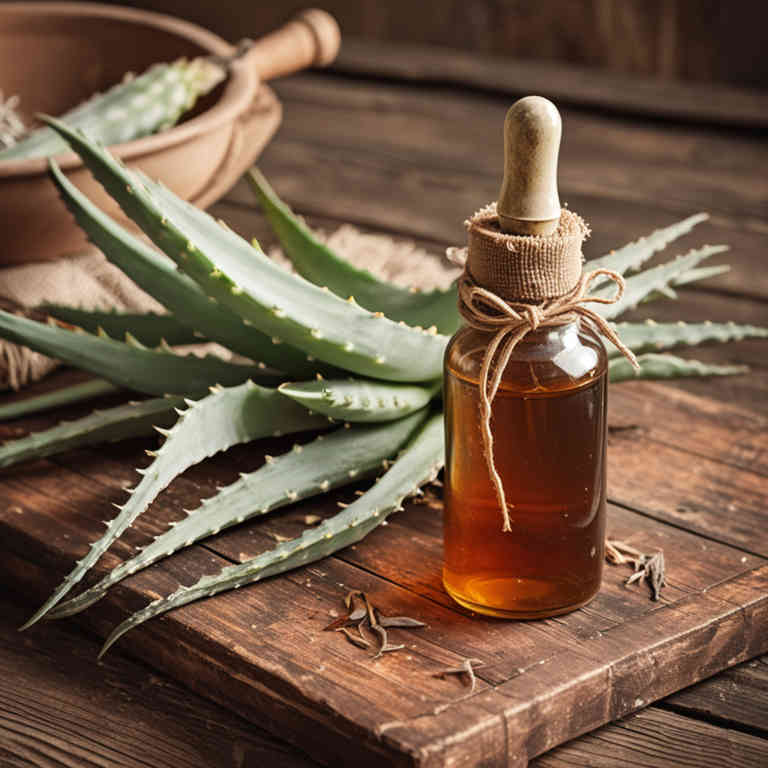Aloe vera tincture for medicinal use

Aloe vera tincture is a concentrated liquid extract made by soaking the gel from the Aloe vera plant in alcohol or another solvent.
It is commonly used in herbalism to treat skin conditions, inflammation, and digestive issues due to its soothing and healing properties. The tincture is valued for its ability to promote wound healing and reduce irritation. It is often taken internally in small doses to support gut health and detoxification.
Herbalists also use it topically to alleviate symptoms of eczema, psoriasis, and sunburn.
Uses
Aloe vera tincture has been used to treat a variety of ailments for thousands of years, with its roots tracing back to ancient Egypt, where it was revered as the "plant of immortality.".
Traditionally, it was used to soothe skin irritations, promote wound healing, and even as a remedy for digestive issues. In modern times, aloe vera tincture is widely recognized for its anti-inflammatory and antioxidant properties, making it a popular ingredient in skincare and health supplements. It is also used to alleviate symptoms of burns, sunburns, and digestive discomfort.
Due to its versatility and perceived benefits, it continues to be a staple in both traditional and contemporary medicine.
Benefits
Aloe vera tincture has health benefits such as promoting skin healing, reducing inflammation, and supporting digestive health.
It contains compounds like polysaccharides and enzymes that help repair damaged skin and reduce redness. The tincture is also known to aid in relieving symptoms of indigestion and irritable bowel syndrome. Its antioxidant properties may boost the immune system and protect cells from damage.
Additionally, it can be used topically to soothe minor burns and skin irritations.
Constituents
Aloe vera tincture active constituents include polysaccharides, anthraquinones, enzymes, and vitamins.
These components contribute to its anti-inflammatory, antimicrobial, and wound-healing properties. Polysaccharides enhance immune function and promote tissue repair. Anthraquinones have a laxative effect and may support digestive health.
Vitamins such as A, C, and E provide antioxidant benefits that protect cells from damage.
Preparation
To make Aloe vera tincture, first select a mature Aloe vera leaf and cut it open to extract the gel.
Next, place the gel in a glass jar and cover it completely with a high-proof alcohol such as vodka or grain alcohol. Let the mixture sit in a dark place for 4 to 6 weeks, shaking it occasionally to ensure even extraction. After the steeping period, strain the liquid through a fine mesh strainer or cheesecloth to remove the plant material.
Finally, store the tincture in a dark, airtight bottle away from light and heat for optimal potency and shelf life.
Side Effects
Aloe vera tincture may lead to gastrointestinal discomfort, including nausea, diarrhea, and stomach cramps, especially when consumed in large amounts.
It can also cause electrolyte imbalances by increasing potassium excretion, which may affect heart function. Long-term use might lead to dependency or reduced effectiveness of certain medications, particularly those for diabetes or hypertension. Some individuals may experience allergic reactions, such as skin irritation or hives, upon contact or ingestion.
It is important to consult a healthcare professional before using aloe vera tincture, especially for prolonged periods or in combination with other treatments.